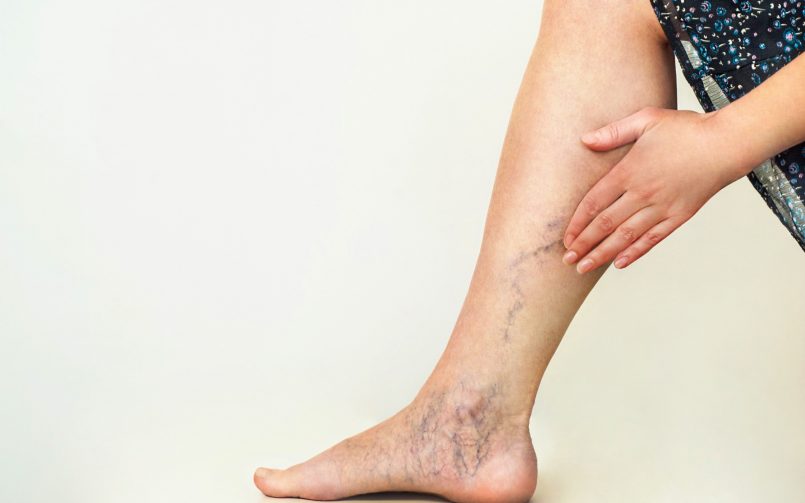For individuals in Riyadh seeking to address the discomfort and cosmetic concerns associated with varicose veins, the good news is that effective treatment options extend beyond traditional surgery. A range of non-surgical and minimally invasive procedures are available, offering safe and convenient alternatives with shorter recovery times and minimal scarring. These advanced techniques target the underlying causes of varicose veins, providing relief from symptoms and improving the appearance of the legs. If you're looking for effective and safe varicose veins treatment in Riyadh, top clinics in the city offer advanced laser and non-surgical solutions tailored to your needs.
The journey towards non-surgical varicose vein treatment in Riyadh typically begins with a thorough consultation with a vascular specialist, phlebologist, interventional radiologist, or dermatologist. These experts utilize advanced diagnostic tools, primarily duplex ultrasound, to visualize the blood flow within the leg veins and identify the specific veins that are malfunctioning. This detailed assessment is crucial in determining the most appropriate non-surgical treatment plan tailored to the individual's unique condition and the size and location of their varicose veins.

Several highly effective non-surgical treatments are readily available in Riyadh:
Sclerotherapy stands as a cornerstone of non-surgical varicose vein treatment. This procedure involves the direct injection of a sclerosing solution into the affected veins using a fine needle. The solution irritates the inner lining of the vein, causing it to swell, stick together, and eventually scar and close off. Over time, the treated vein collapses and is naturally absorbed by the body. Sclerotherapy is particularly effective for treating small to medium-sized varicose veins and spider veins. Multiple sessions may be required to achieve optimal results, and different types of sclerosing solutions, including liquid and foam, can be used depending on the size and nature of the veins being treated.
Endovenous Laser Ablation (EVLA), while minimally invasive, is considered a non-surgical approach as it does not involve traditional surgical incisions or vein removal. As previously discussed, EVLA involves the insertion of a thin laser fiber into the diseased vein through a small, needle-sized entry point. Laser energy is then delivered to the vein wall, causing it to heat up, collapse, and seal shut. Blood flow is redirected to healthy veins. EVLA is highly effective for treating larger varicose veins and offers a quick recovery with minimal scarring.
Similarly, Radiofrequency Ablation (RFA) is another non-surgical endovenous technique. Instead of laser energy, RFA utilizes radiofrequency energy delivered through a thin catheter to heat and close the malfunctioning vein. The process and benefits are comparable to EVLA, offering a safe and effective alternative for treating larger varicose veins without the need for surgical removal.
Ambulatory Phlebectomy (Microphlebectomy) is also considered a minimally invasive, non-surgical procedure. It involves the removal of superficial varicose veins through tiny skin punctures or incisions, typically only a few millimeters in length. Using specialized surgical hooks, the physician gently extracts the visible varicose veins. Because the incisions are so small, stitches are usually not required, and scarring is minimal. Ambulatory phlebectomy is often used in conjunction with other non-surgical treatments like sclerotherapy or endovenous ablation to address varicose veins of varying sizes and locations.
Beyond these interventional procedures, conservative management plays a crucial role in non-surgical varicose vein care, particularly in managing symptoms and slowing the progression of the condition. This includes:
- Compression Stockings: Wearing graduated compression stockings applies pressure to the legs, supporting the veins and improving blood circulation. They help reduce swelling, pain, and the risk of blood clots.
- Lifestyle Modifications: Adopting healthy habits such as regular exercise (especially walking), maintaining a healthy weight, elevating the legs when resting, and avoiding prolonged standing or sitting can significantly alleviate symptoms and improve venous health.
Choosing the most appropriate non-surgical treatment in Riyadh depends on various factors, including the size, location, and severity of the varicose veins, the patient's overall health, and their individual preferences. Experienced specialists in Riyadh will conduct a thorough evaluation and discuss all available options, explaining the benefits and potential risks of each procedure to help patients make informed decisions.
In conclusion, individuals in Riyadh seeking to treat their varicose veins have access to a range of safe and effective non-surgical options. Procedures like sclerotherapy, EVLA, RFA, and ambulatory phlebectomy, combined with conservative management strategies, offer less invasive alternatives to traditional surgery, resulting in shorter recovery times, minimal scarring, and significant improvement in both the symptoms and appearance of varicose veins. Consulting with a qualified vascular specialist in Riyadh is the first step towards exploring these advanced non-surgical solutions and achieving healthier, more comfortable legs.




Comments